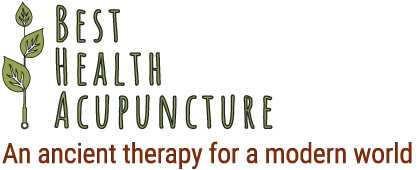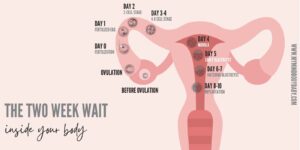With the heart being a well-recognized symbol for Valentine’s Day, Health Canada has declared February to be Heart Month! This is a great opportunity to bring attention to one’s cardiovascular health and how you can improve your lifestyle to prevent heart disease. But since most people are familiar with heart health in terms of Western Medicine, this article will focus on the Traditional Chinese Medicine (TCM) viewpoint of the Heart Organ.
Like Western Medicine, every organ in Chinese Medicine has specific responsibilities within in the body. The difference is that in addition their physical function, TCM believes they also have a mental, emotional and spiritual function as well. Although the current viewpoint of the heart in Western Medicine is more mechanical (it acts as a “pump”), newer research from The HeartMath Institute is starting to reveal the heart as a thinking, feeling organ. Something that Chinese Medicine has been practicing all along. How cool is that?!
Functions of the Heart in Traditional Chinese Medicine:
1. Controls the Blood Vessels:
The Heart is referred to as the Ruler (or Emperor) of all the other internal organs in the body. One of it’s many functions is to control the blood vessels and promote circulation. This sets the tone for proper functioning of all the other organs by making sure blood flows smoothly throughout the entire body.
2. Houses the Shen:
The “Shen” in TCM is a difficult concept to translate, but refers to the spirit/soul/mind of a person. This means the heart controls a person’s mental activity, consciousness, thoughts, ideas, ability to focus, intelligence and memory. Because the heart is seen as the “House of The Shen,” if the heart is balanced the mind will also be balanced. Conversely, if the heart is imbalanced symptoms associated with mental activity and consciousness will manifest. This can be: dream disturbed sleep, poor concentration, racing thoughts, forgetfulness and “brain fog.”
3. Opens to the Tongue:
The tongue is considered the “root of the heart” and looking at a person’s tongue is a great way to assess their heart health. Heart pathology is reflected in the tongue, especially the tip. A red tip indicates heat in the heart. Excess heat in the heart will give rise to symptoms of insomnia, heart palpitations, a red facial complexion and a bitter taste in the mouth. On the other hand, a pale tongue indicates deficiency. Symptoms of a heart deficiency can be: shortness of breath, spontaneous perspiration, dream disturbed sleep, and being easily startled. Remember, TCM is all about BALANCE, so the heart organ should not be in a state of excess or deficiency. The ideal tongue should be of light red colour, have a clear, moist coating and be free of any cracks, teeth marks or deviations.
Also, because of the tongue’s close relation to the heart, issues with speech can indicate a heart imbalance. This can be seen as incessant talking, rapid speech, laughing inappropriately or more serious conditions such as stuttering and aphasia (an inability to speak).
4. Associated with a Bitter Taste:
In 5 Element theory, every organ is associated with a taste (bitter, sour, sweet, salty and spicy). The heart is associated with a bitter taste. This means that if you have a bitter taste in your mouth or are craving bitter foods then your heart is in need of some attention! The colour associated with the heart is red, so in TCM red, warm foods are said to nourish the heart, improve circulation and build yang energy.
Foods that benefit the heart:
- Watermelon
- Tomatoes
- Beef
- Red beans
- Red apples
- Beets
- Radish
- Rhubarb
- Strawberries
- Red lentiles
- Red dates
- Chili
- Cumin
5. Emotion: Joy
Just as every organ has an associated taste, there is also an emotion attached to each organ. The 5 Emotions are: sadness (the lungs), fear (the kidneys), worry (the spleen), anger (the Liver) and joy (the heart). To improve your heart health all you have to do is SMILE! A genuine expression of joy and happiness will do wonders for your heart. Smiling initiates a positive physiological healing effect on the whole body – especially on the heart. This is one great cardiovascular exercise that doesn’t involve running on a treadmill 🙂
If you think you have a heart imbalance or you would simply like to enhance your memory, focus, concentration or sleep than you need a heart-focused acupuncture treatment! Give us a call and schedule an appointment. We will do a full TCM assessment to determine the best plan of care for you.
Call Today: 647.299.4631 or 905.553.9255
Online: www.besthealthacupuncture.com






